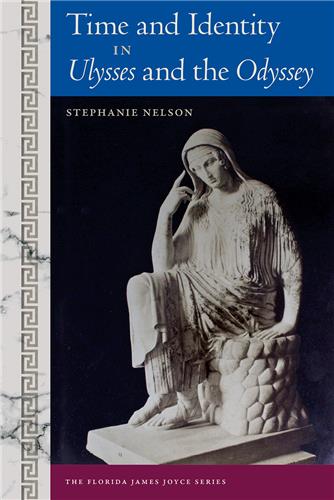Joyce without Borders
Circulations, Sciences, Media, and Mortal Flesh
Edited by James Ramey and Norman Cheadle
Hardcover: $85.00
- Series: The Florida James Joyce Series
“A solid volume of ambitious and innovative scholarship that breaks down the geopolitical, philosophical, methodological, historical, disciplinary, and moral boundaries of traditional Joycean scholarship. It invites readers to consider unusual and compelling approaches by delving into transatlantic readerly relationships, parasitology, posthumanism, algorithmic writing, cartoons, comics, game theory, pornography, and more. A must-read.”—Brian Price, coeditor of TransLatin Joyce: Global Transmissions in Ibero-American Literature
“An exemplary collection that productively unsettles the conventional borders and divisions of Joyce studies and makes serious interventions in such fields as transnational modernism, posthumanism, media studies, death writing, and more. This volume marks a major contribution to Joyce studies and will be invaluable to future scholars.”—Kiron Ward, University of St. Andrews
“Offers an original foray into the unlimited dimensions of Joyce’s works. A collection in which scholars from all over the world investigating the ever-delivering riches of Joyce’s oeuvre will find instruction and delight for years to come.”—Onno Kosters, Utrecht University
This book addresses James Joyce’s borderlessness and the ways his work crosses or unsettles boundaries of all kinds. The essays in this volume position borderlessness as a major key to understanding Joycean poiesis, opening new doors and new engagements with his work.
Contributors begin by exploring the circulation of Joyce’s writing in Latin America via a transcontinental network of writers and translators, including José Lezama Lima, José Salas Subirat, Leopoldo Marechal, Edmundo Desnoës, Guillermo Cabrera Infante, and Augusto Monterroso. Essays then consider Joyce through the lens of the sciences, presenting theoretical interventions on posthumanist parasitology in Ulysses; on Giordano Bruno’s coincidence of opposites in Finnegans Wake; and on algorithmic agency in the Wake. Cutting-edge cognitive narratology is applied to the “Penelope” episode.
Next, the volume features innovative essays on Joyce in relation to early animated film and comics, engaging with animated film in the “Circe” episode, Joyce’s points of contact with George Herriman’s cartoon strip Krazy Kat, and structural affinities between open-world gaming and Finnegans Wake. The final essays focus on abiding human concerns, offering new research on Joyce’s creative use of “spicy books”; a Lacanian consideration of “The Dead” alongside Katherine Mansfield’s “The Stranger” and Haruki Murakami’s “Kino”; and a meditation on Joyce’s uncertainties about the boundary between life and death.
For Joyce, borders are problems—but ones that provided precious fodder for his art. And as this volume demonstrates, they encourage brilliant reflections on his work, from new scholars to leading luminaries in the field.
James Ramey, professor at Universidad Autónoma Metropolitana, Cuajimalpa, is coeditor of Mexican Transnational Cinema and Literature. Norman Cheadle is professor emeritus of Hispanic studies at Laurentian University, Sudbury, Canada, and the author of an annotated English translation of Leopoldo Marechal’s Adán Buenosayres.
A volume in the Florida James Joyce Series, edited by Sebastian D. G. Knowles
- Sample Chapter(s):
- Excerpt
- Table of Contents
There are currently no reviews available












